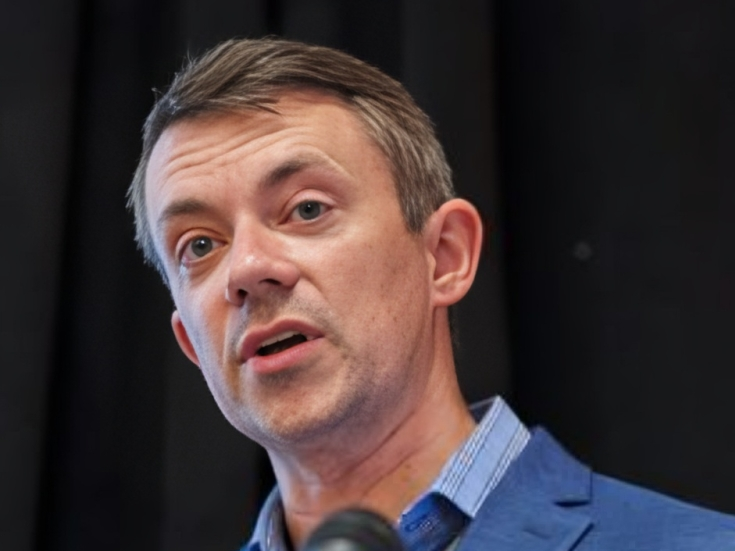
Mark Lewis: Words Matter In Oncology
Mark Lewis recently posted on X:
“My healthcare institution’s media department fielded several requests from news organizations wanting to talk to an oncologist about Princess Catherine’s cancer diagnosis and treatment.
When speaking carefully to reporters I realized: WORDS MATTER IN ONCOLOGY.”
A TUMOR BY ANY OTHER NAME
Many patients with cancer have to navigate a linguistic minefield with each new scan.
Even in the era where the text of radiology reports may be immediately available to read, synonyms abound to the point of confusion: mass, lesion, neoplasm, tumor…
THE ONCOLOGIST WITHOUT THE PATHOLOGIST IS BLIND
The reality is that scans are seldom enough to make a cancer diagnosis.
We have a medical term – pathognomonic, from the Greek pathos + gnomon ~ suffering + judge – meaning an appearance that’s totally distinctive of a disease.
IF THE TUMOR IS THE RUMOR THEN TISSUE IS THE ISSUE
This cringe couplet contains an undeniable truth: We almost never diagnose cancer without proof, without obtaining tissue – either by biopsy, surgery or sometimes even blood sampling – to examine in the lab under the microscope.
FEW CANCERS ARE VISUALLY ‘PATHOGNOMONIC’
As a gastrointestinal oncologist, there is perhaps one type of cancer – hepatocellular carcinoma, which starts in the liver and has a highly characteristic appearance on scans, easily corroborated with a blood test – I treat without tissue.
WHY ‘NON-CANCEROUS’ -> MALIGNANT?
Surgery performed for a presumably benign condition can yield nasty surprises in the path lab once all the operative specimens are scrutinized.
For instance, colon surgery for inflammatory bowel disease can identify a hitherto-unknown cancer.
‘OCCULT’
There is nothing supernatural about invoking this term in oncology; it means cancer that was previously ‘hidden from view’.
~1 in 200 of the appendectomy specimens at my hospital are found to contain tumors when we look at the appendix POST-op.
‘MORE STUDY NEEDED’
Even operations performed with foreknowledge of cancer can take a long time for pathology reports to be released
I had the head of my pancreas removed surgically in 2017 and it took weeks for the final analysis – requiring multiple pathologists – to result.
ANCILLARY TESTING
No oncologist treats breast cancer without at least trying to determine what receptors are or aren’t expressed on its surface – estrogen, progesterone, HER2 (hence when all are absent it denotes ‘triple negative’ breast cancer)
But these tests, too, take time.
My point in all of this is that oncologists can only practice in close multidisciplinary partnership with our colleagues in radiology, surgery, pathology, and laboratory medicine.
And it, of course, requires enormous certainty in the cancer diagnosis for me to prescribe chemotherapy.
Guesswork subjects the patient to all manner of needless toxicity and strays far from our ethical precept of primum nonnocere: first do no harm!
These subtleties are difficult to convey quickly, and also without proper context and tone (often lacking on social media platforms!)
While I think the messaging around Princess Catherine’s diagnosis and treatment has been confusing (see also: “preventative” chemo vs. the more accurate term, adjuvant), I see nothing mendacious in the revision of the initial ‘non-cancerous’ announcement from Kensington Palace.
I also think it’s inappropriate — even, especially?! – For a gastrointestinal oncologist to speculate knowingly on what type of cancer is affecting the princess.
‘Differential diagnosis’ is another medical term that indicates a breadth of possible conditions (oncologic or not).
It is true that young-onset colon and rectal cancer is becoming worryingly more common (and, perhaps unwisely, I invoked the memory of Chadwick Boseman yesterday as a tragically famous example of a public figure who was dealing privately with a serious abdominal malignancy).
Having long since waived my own confidentiality I know it’s a decision you can only make once — a bell that cannot be unrung – and also that a patient’s privacy is as close to sacrosanct as anything we have in secular medicine, *crucial* to the trust placed in us as physicians.
This I know for sure: I would not plan treatment for any patient for cancer without having FAR more nuanced details than have been publicly disclosed in Princess Catherine’s case, and I respect her right to share as much as she sees fit about her own health and for her own family.”
Source: Mark Lewis/X
Mark A. Lewis is the Director of Gastrointestinal Oncology at Intermountain Healthcare in Utah, the Co-Chair of adolescent & young adult (AYA) oncology in the SWOG cooperative group, and the Vice President of American Multiple Endocrine Neoplasia Support. Dr. Lewis is also a well-known patient advocate and social media influencer.
-
Challenging the Status Quo in Colorectal Cancer 2024
December 6-8, 2024
-
ESMO 2024 Congress
September 13-17, 2024
-
ASCO Annual Meeting
May 30 - June 4, 2024
-
Yvonne Award 2024
May 31, 2024
-
OncoThon 2024, Online
Feb. 15, 2024
-
Global Summit on War & Cancer 2023, Online
Dec. 14-16, 2023
